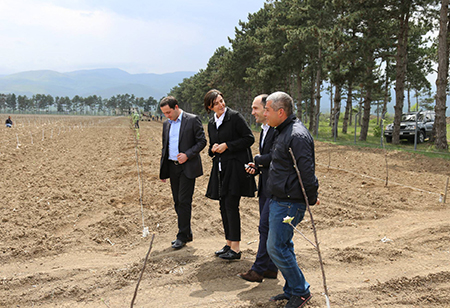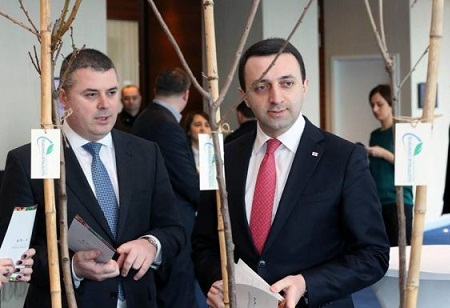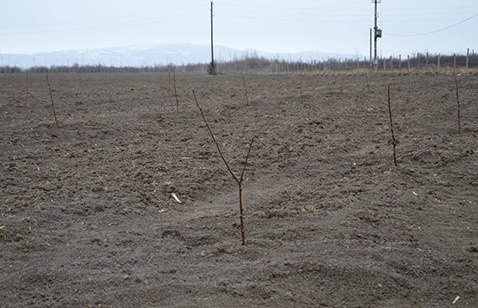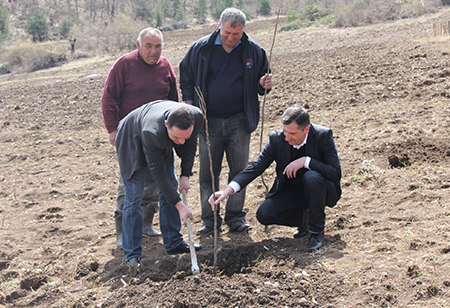Agricultural opportunities aplenty in Shida Kartli region

The state-run project Plant the Future is offering an abundance of agricultural opportunities for people in Georgia’s Shida Kartli region.
Today it was announced the project would oversee the planting of new orchards on about 62ha in the region.
The project aimed to co-finance the creation of nurseries and gardens across the country, and in turn, stimulate the country’s agricultural industry.
Eight beneficiaries have received funding from Georgia’s Agricultural Project Management Agency to cultivate the new orchards.
One of the beneficiaries, Giorgi Mamestsarashvili, has already started planting a new orchard in Shida Kartli’s Bebnisi village. Mamestsarashvili was offered 88,000 GEL financial assistance from the Agency to cultivate an apple orchard on 15ha of land.
Today, Georgia’s Minister of Agriculture and several officials visited Bebnisi to oversee the orchard planting.
Farmers and agricultural entrepreneurs wishing to get financial assistance were invited to apply for support in March 2014.
The Government said the Plant the Future campaign would help farmers produce high quality products that would compete with imported products in the local market. At the same time, this should increase the export potential of Georgia’s agricultural products.
Entrepreneurs who wished to create a garden were offered enough funds to cover 70 percent of plant costs and 50 percent of the cost of an irrigation system. For people wishing to establish a nursery, successful candidates will be offered 50 percent of their total costs.
At the same time, project beneficiaries will benefit from the agricultural credit program; where farming cooperatives will receive pesticide sprayers as a gift, the soil testing laboratory costs will be reimbursed for all beneficiaries, and they will be offered practical trainings and theory courses to improve their farming skills.
The project envisaged the creation of 1,000-1,200ha of modern-type gardens and between 30 and 40 new nurseries.
 Tweet
Tweet  Share
Share



